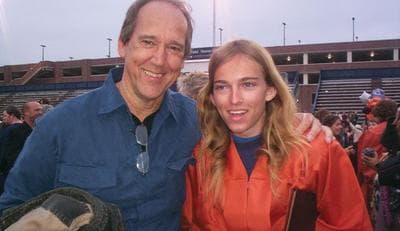Advertisement
Jails Become De Facto Psychiatric Wards
Resume
In the 1980s, mental health care transitioned away from institutionalization and toward integrating the mentally ill into communities, with the help of medication and community health centers.
The medications came, but community mental health centers did not. And budgets cuts have meant fewer beds for people with mental illness in regular hospitals.
The result is that often the only way to get help for a loved one who is severely mentally ill is by calling the police.
In a piece in Mother Jones magazine, journalist Mac McClelland writes about how the issue affected her own family.
Her cousin Houston had been displaying symptoms of schizophrenia. He was seeing a psychiatrist and was on medication, but he became increasingly violent.
Houston's parents asked the psychiatrist what to do. He told them to call the police. For a number of reasons, the family was reluctant to do so.
One night in 2011, Houston stabbed his father 60 times.
McClelland writes, "It's insanity to kill your father with a kitchen knife. It's also insanity to close hospitals, fire therapists, and leave families to face mental illness on their own."
Does this struggle to find mental health care resonate with you? Tell us on Facebook or in the comments.
Guest:
- Mac McClelland, reporter for Mother Jones. She tweets @MacMcClelland.
This segment aired on May 16, 2013.